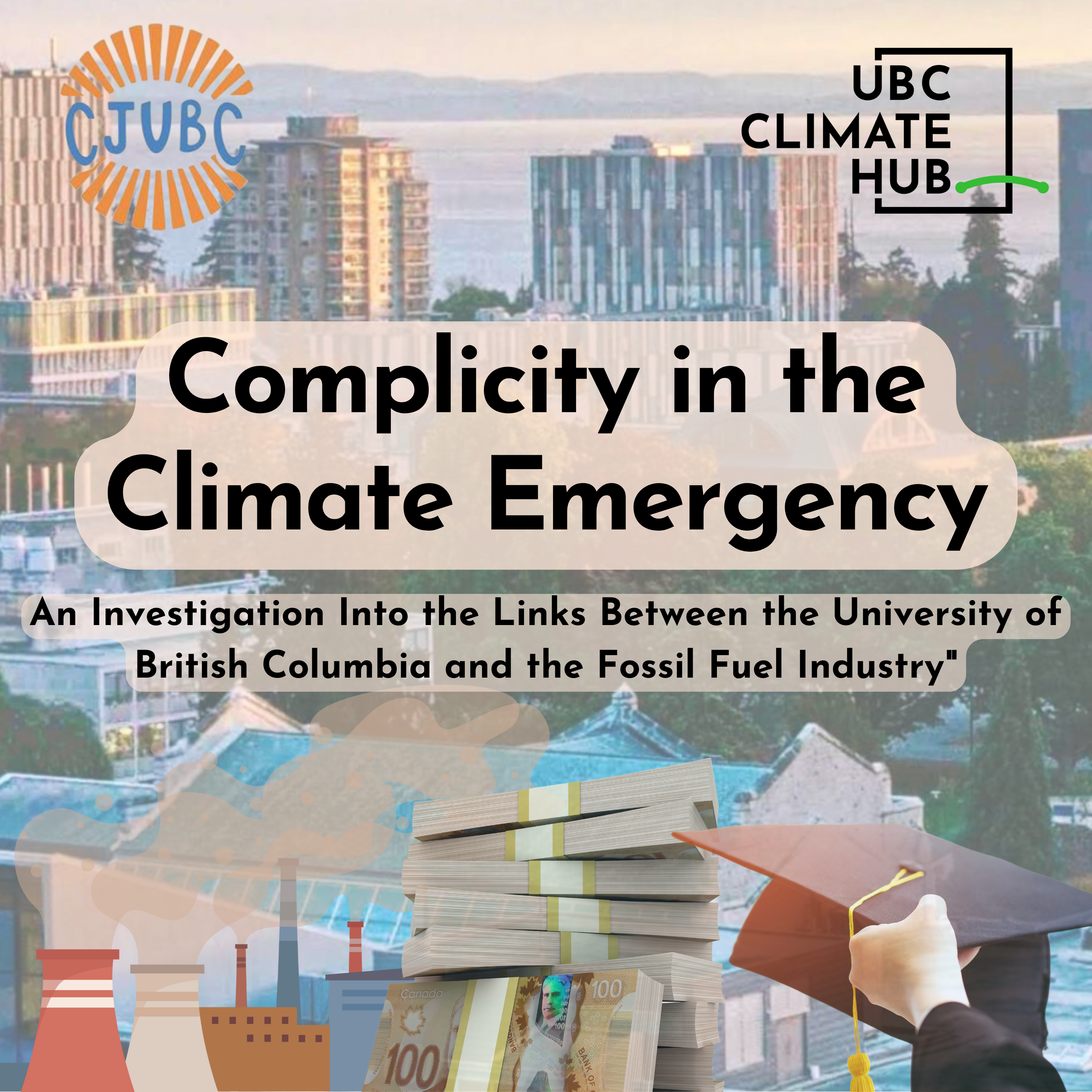
Author: Anna Brookes, Joshua Emsley, Tova Gaster, Michelle Xie, and Husna Zaidi
Faulty Supervsior: Dr. Jessica Dempsey and Dr. Mohammed Rafi Arefin
Community Partner: Climate Justice UBC
Graduate Academic Assistant: Manvi Balla
Year: 2022

Fossil fuel emissions are the leading cause of global warming, which is now widely recognized as an immediate and existential crisis for humanity and the biosphere. Although ordinary Canadians remain dependent on fossil fuels to power our daily lives, the fossil fuel industry — which directly propels oil and gas extraction, often in direct violation of Indigenous sovereignty— is the ultimate culprit to be held accountable for the climate crisis. The University of British Columbia (UBC) committed to fully divest its $2.8 billion endowment from fossil fuels in 2020 to cease support for the industry’s unsustainable activities. However, UBC continues to receive financial support from the fossil fuel industry through donations to research, building operations, and other key pathways. These links have the potential to legitimize the fossil fuel industry as a social and economic actor, and to damage UBC’s integrity as a world-renowned research university. Our research aims to identify the extent of fossil fuel influence at UBC so as to promote just transitions towards sustainable and ethical alternatives, and to put UBC in line with its stated climate commitments as per the 2019 Climate Emergency Declaration and Climate Emergency Task Force Report & Recommendations.
We investigated three main links between UBC and the fossil fuel industry through document surveys and case studies: corporate donations, research funding, and the exchanges of human capital between industry and UBC. We surveyed lists of donations, career fair exhibitors, and student awards. Links to research were explored by amalgamating data from NSERC and Web of Science using targeted search terms. Funding amounts and sources were identified and analyzed.